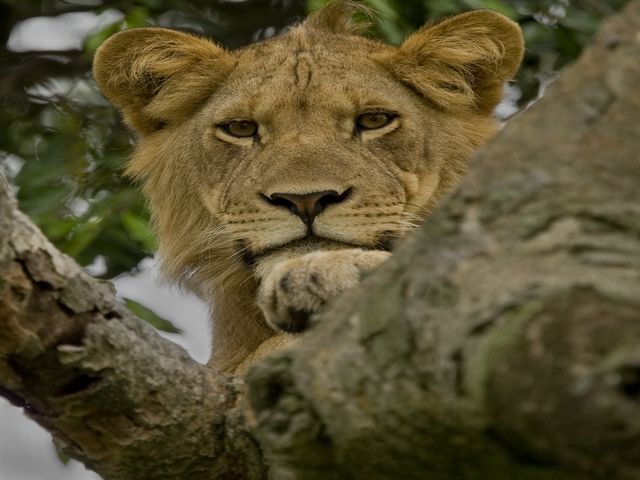Rwanda
The land of a thousand hills, with it’s endless expansive lush mountains and diverse natural beauty lies within the Great Lakes region of Central Africaand boasts a moderate climate.
Mountains dominate the centre and west of the country, while the east consists of savanna, plains, and swamps.
Rwanda is bordered by Uganda to the north, Tanzania to the east, Burundi to the south, and the Democratic Republic of the Congo to the west. Despite being landlocked and one of Africa’s smallest countries, 26,338 square kilometres, Rwanda has an incredible treasure trove of biodiversity that requires protection. The Albertine Rift Eco-zone (ARE), a region that stretches across six countries with Rwanda as its epicentre, is of particular importance as it has an exceptional level of species endemism. Scientists regard it as having the highest levels of biodiversity on the continent.
Rwandan Culture
Rwanda has a rich culturewith diverse fine crafts and strong traditions. There are good shopping opportunities to be had in local markets, craft shops and craft co-ops, in and around Kigali in particular, but throughout the country too.
Look out for Rwanda’s traditional Agaseke baskets which have become famous around the world. The Imigongo handcrafted paintings and the pottery projects.
Cultural Tourism initiatives are high on the agenda and being developed throughout the country, these promote community based tourism and afford you the opportunity to benefit a community of people while experiencing the culture and the country. Some of these include, tea, coffee and (beer) sorghum production visits in the local
communities, fishing and boating projects, tours with traditional herbalists and visits to local villages where one can earn to cook traditional meals.
There is even a reconciliation village worth visitng where one can hear the testimonies of genocide survivors and collaborators.
The Intore dance or ‘Ballet of Rwanda’ and has grown in popularity and is an attraction for travellers. Splendidly adorned intore dancers, with spears in hand dance
rhythmically from side to side to the sound of ‘Ingoma’ drums, in celebration. Be sure to visit National Museum in Huye to see these dancers and Africa’s greatest ethnological collection.
International Award winning:
Coffee Rwanda developed a strategy of targeting production of high-quality coffee and is making premium coffee-growing a national priority. It is now achieving international recognition as a producer of some of the world’s best coffee. Rwanda’s coffee is winning international competitions and commands some of the world’s highest prices. It is sought after by Starbucks, Green Mountain Coffee, Intelligentsia, and Counter Culture Coffee.
Blessed with ideallic coffee-growing conditions: the high altitude, rich volcanic soil, sunny days and equatorial mist, the coffees are deliciously sweet, bright with clean citric characteristics, or plush and full of chocolate, malt and berry like flavors. Rwanda has fast become the source of some of the finest coffees in East Africa.
Tea
As in the case of coffee, Rwanda produces one of the best quality teas in the world.The land is perfectly fertile to grow tea, especially along the Congo-Nile crest, from the northwest to the southwest of the country. The altitude allows for the production of first quality tea. Due to the high-elevated grounds where the tea grows, its strength, bright color, brisk flavor and consistency in manufacturing, Rwanda tea is renowned all over the world as a superior tea. These healthy growing conditions, make
Rwanda’s Tea unique and consistent quality. Due to the high quality, much of the tea is exported.
There are a number of Tea Route and Coffee Route experiences in the North and Western Provinces. These tours explore over several growing and production processes from the plantations, picking washing, selection, drying, and so on, up till drinking your own tea and coffee. These tours are community based projects and benefit the communities.
In memory The 1994 Rwandan Genocide saw the mass murder of an estimated 800,000 people over the course of approximately 100 days. An estimate of as much as 20% of the country's total population was murdered as a result of the longstanding ethnic tension and competition between the minority Tutsi, who had controlled power for centuries, and the majority Hutu peoples, who had come to power in the rebellion of 1959–1962 and overthrown the Tutsi monarchy.
The memorials found throughout the country and testimonies are deeply moving accounts standing in memory of the 1994 Genocide, the brutality and lost lives of friends and families. Today, the people of Rwanda embrace peace and reconciliation.
The nature lover will be impressed by the variety and the rarity of what can be observed visiting Rwanda, but there’s more to Rwanda than protected mountain gorillas and Albertine endemics. The shores of Lake Kivu boast some of the best inland beaches in Africa and offer an opportunity to explore the many small islands of Lake Kivu.
Kigali, the capital and conference hub of East Africa, forms a central stepping stone to various destinations within the country and Central and East Africa. The city is green, vibrant, safe and brews superb homegrown tea and coffee.
Although Rwanda is all too often associated with the 1994 Genocide that resulted in the mass murder of as much as 20% of the country's total population, the country is taking giant strides towards cultural recovery and investment in the future. Nyungwe Forest National Park Deep in the southwest within the Albertine Rift Area is the Nyungwe Forest National Park, home to the region’s largest and oldest remaining patches of mountain rainforest and a number of eco-systems from rainforest, bamboo, grassland, swamps, and bog habitats.
It protects one of the region’s largest and oldest remaining patches of montane rainforest and is home to 310 species of birds. This park is the most important ornithological site in Rwanda. It is increasingly being sought out for the incredible birding opportunities, particularly the numerous Albertine Rift endemics; the highest
concentration found in any single park in Africa.
There are more than 240 tree species, more than 140 colourful orchids, 1050 plant types, such as the giant lobelia. Of these plants 250 are Albertine Rift Endemics.
Mount Bigugu is the highest mountain in the park, reaching an altitude of 2950m. Also within the park, is the most remote source of the Nile.
There are 13 primate species, a number of mammals and a large variety of other species within the park, comprising of hundreds of butterflies, a small number of
snake species, due to the altitude but several colourful lizards and five species of chameleon. There is much to be seen and experienced on a number of magnificent
hikes offered in the park.
Volcanoes National Park
To the north lies the Volcanoes National Park, which protects the Rwandan portion of the Virunga Mountains, a Transforntier Conservation Area that includes protected
areas in Uganda and the DRC and forms a complex of mostly dormant volcanoes, it includes Rwanda’s highest point, Mount Karisimbi (4 507m), and the two active
volcanoes, Mount Nyiragongo and Mount Nyamuragira.
This National park boasts almost 100 bird species but is more famous for being home to the world’s last remaining mountain gorillas in their natural habitat. Although visited
predominantly for the mountain gorillas, there are several other tourism sites and opportunities in the park and surrounding area. Theres a chance to climb to the Mount
Bisoke’s beautiful crater lake or even the hike to the summit of the Kinyarwanda mountain, the fifth highest mountain of Africa.
The often neglected twin lakes Burera and Ruhondo and the nearby Rugezi swamp are recognised for their excellent waterbirding opportunities. Within the area there
are a number of community based tourism tours on offer, for example: visiting villages, agri-production plants, an ethno botony tour or even a group of local fisherman
using traditional methods, or simply sit back and take in the breathtaking scenery of the area.
Akagera National Park
This is Rwanda’s Big 5 game park, it’s located on the north-eastern edge of Rwanda borders Tanzania and incorporates the Kagera River, hence the name Akagera.
The National Park was founded in 1934 to protect animals and vegetation in three habitats: savannah, mountain and swamp. Akagera is establishing itself as home to the Big 5 and a number of big Game. It is recognised as one of the best spots for bird-watching in Rwanda. The diverse habitats of the park encourage a wide variety of bird species to the area. Akagera is indisputably the best place in Rwanda to find savannah birds and raptors. It is also very well stocked with water-birds and one of the few places where the less common birds living amongst the papyrus swamps can be spotted. Akagera and Nyungwe Forest National Parks are complementary in terms of bird life and there isn’t any species breeding in Rwanda that can’t be spotted in either of these sites.
Lake Muhazi, is being developed as a ‘close to Kigali City’ water-resort. The soon to be built Lake Muhazi Golf & Country Resort will become Central Africa’s first 18-hole golf course on an 80 ha stand, less than an hours drive from Kigali.
Agaseke Project, the "peace basket" In the Rwandan tradition, it's a sign of love and respect to give someone a ‘peace basket’. Peace baskets are used to store
treasures like jewelry, food stuffs such as grains and cereals. Girls normally take at least six peace baskets to the husbands home when they are married filled with treasures and food stuffs.
The other significance of a peace basket is that, after the genocide in Rwanda, many women who were not well educated found it difficult to find jobs and they depended largely on their husbands income which fueled conflicts in their home until women started to make peace baskets which were sold through different associations and cooperatives, this allowed them to earn a living while contributing to the welfare of their homes. Statistics indicate that, lots of men were at peace with their wives after they realized how much they were contributing to the family needs thus creating peace in homes and families.
Also, a reconciling aspect of the baskets is that the Hutu, Tutsi, and Twa women sit side by side to weave these “peace baskets”.
Rwanda is truly a country with something for everyone to enjoy. Here are a few of the many things to do in Rwanda;
1. Visit Rwanda’s famous primates in Nyungwe National Park, Akagera National Park and Volcanoes National Park including Golden Monkeys, Chimpanzees, Colobus
Monkeys, and Baboons to name a few
2. Go mountain climbing at Volcanoes National Park—don’t miss the 5th highest mountain in Africa—or mountain biking over Rwanda’s thousand hills
3. Travel back in time at the King’s Place, Nyanza
4. Enjoy a full traditional Rwandan experience including dancing, traditional crafts, archery, traditional healers, food and a taste of Rwanda’s local brew at Iby’ Iwacu Cultural Village in Musanze in Rwanda’s Northern Province.
5. Visit Rwanda’s Genocide Memorial Sites: Kigali Memorial Site; Murambi Memorial Site; Nyanza Kicukiro Memorial Site; and Ntarama Memorial Site.
6. Visit Rwanda’s largest lake, Lake Kivu and its many islands and beach resort towns Rubavu and Karongi
7. Enjoy fish dishes and a relaxing day at Lake Muhazi around 60km from Kigali
8. Tour Kigali on the Kigali City Tour Bus and learn all there is to know about Rwanda’s capital city
9. Explore Nyungwe National Park’s amazing waterfalls or orchids and butterflies.
10. Join birding safari tour to experience the diversity of Rwanda’s birdlife and visit several of Rwanda’s (IBA’s)
Important Birding areas; Nyabalongo Wetlands, Akagera National Park, Nyungwe Forest National Park, Akanyaru Wetlands, Rugezi Marsh, Volcanoes National Park and
Cyamundongo Forest.
11. Go shopping for Rwandan crafts at one of the many local markets or Cooperatives throughout the country.
12. Explore on of 52 surveyed caves in Rwanda. Formed from Cenozoic volcanic rock.
13. Go canoeing, kayaking, and wind surfing on Lake Kivu.
Email us This email address is being protected from spambots. You need JavaScript enabled to view it.
Watsapp +256.772.788.426


